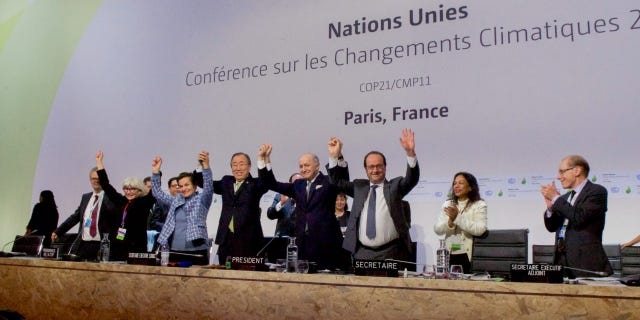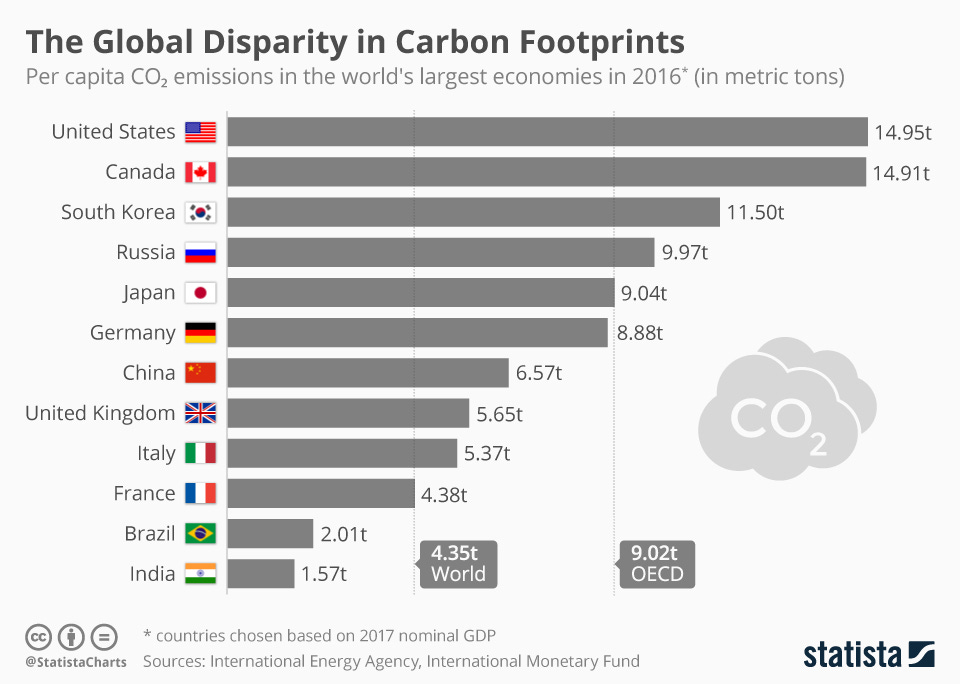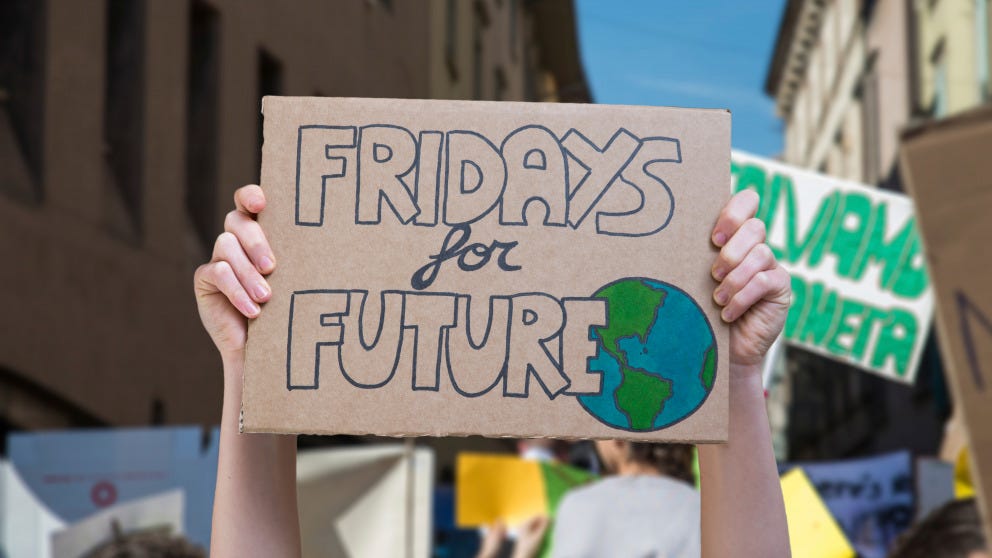What actually is the Paris Climate Agreement? The Green Fix summary
Why we need to keep talking about the climate, and an introduction to the Paris Agreement by Fridays for Future blogger Sanjana Gupta.
Been staring at this screen for a while trying to be interesting.
Sometimes talking about the climate day-in, day-out feels like beating your head against a wall. Or almost like a game of tetris: trying to find the right words, in the right order, to get people to care about the climate crisis.
And not just ‘care.’ Caring is passive. I want people to care, and to care enough to act on it.

And so we write about how urgent it is, how the tipping points are disappearing into the past, the critical consequences of inaction. Then I delete it because doom and gloom puts people off.
So we write about what we can do, and tell people that doing a tiny bit is making a difference. That if we recycle we can stop irreversible damage. Then I delete it because we can’t sell the idea that tiny lifestyle changes are sufficient to stop the crisis.
Trying to motivate people can be exhausting. Even more so when admitting that you don’t always feel super-motivated yourself seems like taboo. Because activists wake up every day, microphone in hand, full of energy to take down the system, right?
No. Sometimes you do it just because you have to.
There are plenty of people privately motivated to make their lives more sustainable. #ecofriendly is trendy. That’s great. But that individual impact is multiplied when we speak out about what we do, and why we do it.
It’s tiring too. Being the one to start the conversation about the climate is, well, awkward. It means confronting counterarguments and misconceptions. It means people dismissing you as preachy, hyperbolic or a hippie.

But it’s necessary. We cannot be content to stay confined in our little eco-friendly social bubbles, confident in the knowledge that everybody already agrees with what you have to say. This is not where change happens. In fact the reverse - it pushes us further into those bubbles, further away from other perspectives or ways of seeing the world.
We need to talk to people who disagree. Who roll their eyes when you start talking about the ‘crisis.’ And (this is a big and) we need to listen to their opinions and respect them. You don’t need to accept their opinions as correct. But meet people where they’re at: you might even have your own perspective changed.
This is where the change happens. And this is why I keep talking about it, all the time, even when I don’t feel like it’s getting anywhere. The frustration of finding myself, yet again, in front of a blank screen trying to find new and original words to talk about the same topic - this is nothing compared to the alternative, to what would happen if we just gave up.
The Green Fix is collaborative: I write about what you want to hear about. This relies on people sending in their questions and suggestions. Shape the newsletter by taking part in the Instagram polls and filling in this feedback survey.
***
ME ASKING FOR HELP TO SHARE THE GREEN FIX, IN ITALICS THIS TIME TO SEE IF THAT WORKS: I run The Green Fix for free, in my own time, alongside a full-time job *world’s tiniest violin starts playing*. This means I don’t always (read: never) have the time to promote it as widely as I’d like to. If you like this newsletter, please help me by sharing it using the button here:
What’s Going On?
Donald Trump withdrew the US from the Paris Climate Agreement, and Biden promised to re-enter it upon his inauguration.
Useful: What is the impact of Biden’s election on the climate?According to a report by the International Energy Agency, wind and solar power capacity will exceed gas and coal by 2024.
Relevant: The original IEA report forecasting energy sources in 2025Over two thirds of UN member countries support the idea of an international treaty to combat plastic pollution.
Relevant: Why do we need an international treaty to fight plastic waste?The EU unveiled its new plan to help people make more sustainable shopping choices, including a ‘sustainability labelling’ scheme.
Relevant: What are the EU’s climate action goals?
Focus On… The Paris Climate Agreement
Sanjana Gupta from the Fridays for Future blogging team talks about this historic agreement and why it matters.
Fridays for Future is a youth organisation which pressures governments to take actions against the climate crisis by creating awareness through digital and in-person strikes on Fridays, as well as extensive campaigning activities. It’s a movement to bring sustainable development and to protect our environment.
Why is it necessary?
The industrial revolution lead to burning enormous amounts of fossil fuels to use as energy. (Read about sustainable energy in a previous edition of the Green Fix). This exploitation of natural resources in turn increases the CO2 emissions, sparking uncontrollable weather fluctuations, floods, earthquakes, heatwaves and many more natural disasters.
What is the Paris Agreement and why do we need it?

There is an urgent need to control the exploitation of the natural world and to mitigate the impact of the climate crisis.
The Paris Agreement is an agreement signed in 2015 between 174 states and the European Union to protect the environment and to avoid devastating climate change. The goal is to keep the temperature increase at less than 2 degrees Celsius above pre-industrial levels, with the secondary goal to limit the temperature increase to 1.5 degrees Celsius or less.
(Maybe useful: What is a ‘pre-industrial climate’?)
Transparency about what governments are doing to achieve the Paris Agreement helps us to follow the implementation and effectiveness of the agreement. This is important to achieve sustainable development, to hold governments accountable to fix the balance between actions increasing or reducing emissions.
How does it work?
Each party that signed the agreement needs to submit their nationally agreed post-2020 climate action plans to the UN: these are called their ‘nationally determined contributions’ (NDCs). Every five years, the parties come together to discuss their progress with each other.
In 2017, the parties decided to give $100 billion per year in aid to the developing countries and vulnerable countries: this is known as climate finance.

Why developed countries?
Developed countries shoulder far more responsibility in worsening the climate crisis compared to others, due to their historic monopolisation of industry and wealth, so it's their duty to help the poorer countries. People in poorer countries, despite doing far less to cause the climate crisis, are also the most-affected.
What we can do as an individual?
Cooperation is key for what we can do as an individual, to create awareness and fight for our future - that's what we do in Fridays for Future! Here’s what you can do:
Question your local and regional governments and ask them to take more specific and measurable targets to meet the Paris Climate Agreement goals. Call them out on unsustainable laws.
Speak up on political decisions that affect you and the planet: in local and national elections, on social media, and in person!
Also, investing in green finance and switching to an ethical bank is a fantastic way to ‘vote with your wallet’ with real impact.
Disadvantages of the Paris Agreement
No country is forced to achieve the targets, so it doesn't affect the counties much. If a country doesn't meet the target, it's their loss but there’s no legal backlash. On the flipside - if a country achieves the target, it would be set as an example and they gain appreciation and admiration from others, potentially setting a precedent.
Why has the Paris Agreement been in the news lately?
It's because of what’s going on in the US. Current US President Donald Trump officially withdrew the US from the Paris Climate Agreement. However, the new elected US president Joe Biden, who will take office in January, promised to rejoin the Agreement. This is part of his ambitious climate action plan he has committed to.
You can follow Sanjana on Instagram @__sanjana_gupta and Fridays for Future at @fridaysforfuture.
So Now What Do I Do?
LEARN MORE
Read this summary of everything you could want to know about the Paris Agreement.
Find out how well your country is doing in achieving the Paris Agreement goals (don’t hold your breath).
Read this analysis: who is really to blame for the climate crisis, and why does it matter?
TRY SOMETHING NEW
Start a conversation about the climate crisis - and not with people who you know already agree with you! Here’s how to do it without sounding preachy.
Starting tomorrow! The annual UN climate change conference has been postponed due to COVID. So youth activists are holding their own and it looks awesome. Register today to follow the discussions.
Reduce demand on fossil fuels by switching to community-owned renewable energy sources.
CHANGE THE SYSTEM
Email your local and national politicians demanding specific actions to meet the Paris Agreement. Here’s how.
UK people: you can find your local politician on WriteToThem. Otherwise, a google search does the trick.Ask the brands you buy from (on social media for greater visibility) to be transparent & ambitious in their sustainable practices. Direct them to the We Mean Business Coalition, who help businesses commit to climate action.
Join a protest! During COVID-19, Fridays for Future are holding digital climate strikes. Join in with the hashtags #Fridays4Future #ClimateStrikeOnline. Check out the climate strike website (created for the global September strike but resource still available to use).
IS THAT IT?
No. As much as I wish my writing skills were so good that I can summarise what you can do in a few bullet points, there’s way more than I can include in one email.
If you think a crucial resource is missing or there’s more you want to know, let me know by filling in this feedback form.
Stay in the loop
The topic for the next Green Fix is decided through a weekly poll on my Instagram @coffee_and_casstaways, as well as responses in this feedback survey. I also use Instagram to share additional resources and tips that don’t make it onto this newsletter. Say hi!
Know someone interested in environmental issues? Forward this email to them - we want to reach people who care about doing more for the planet, with your help!





